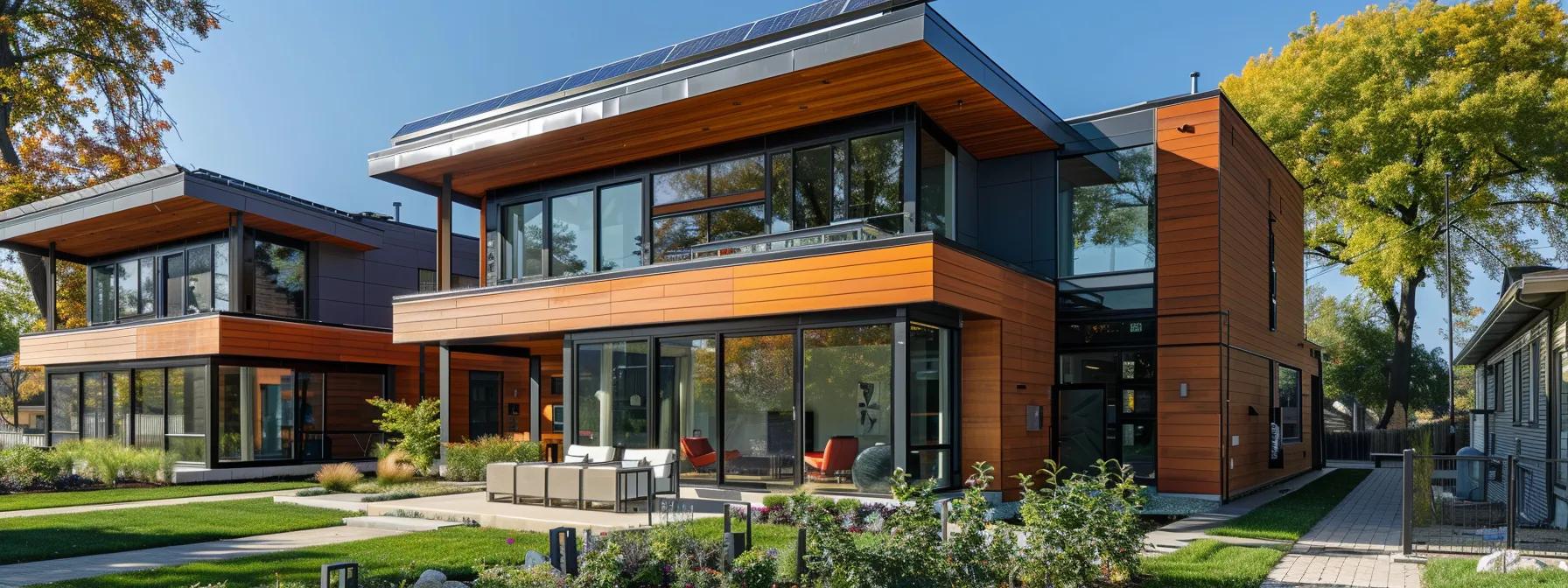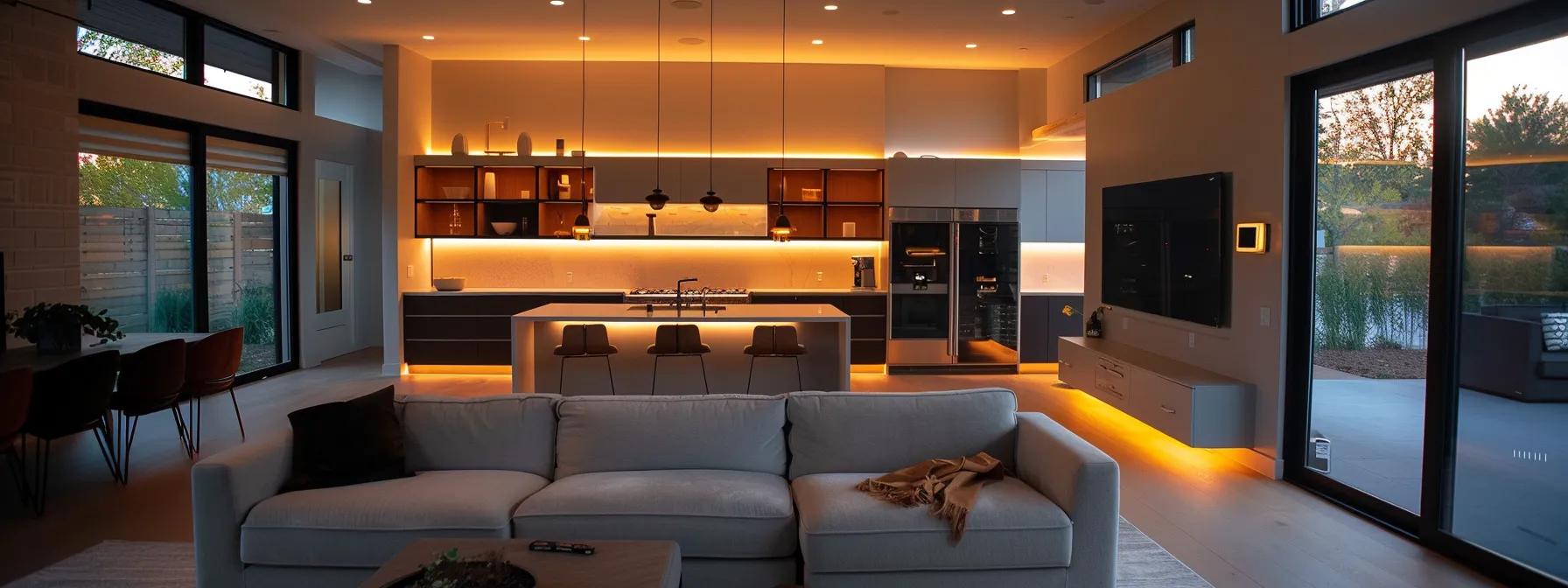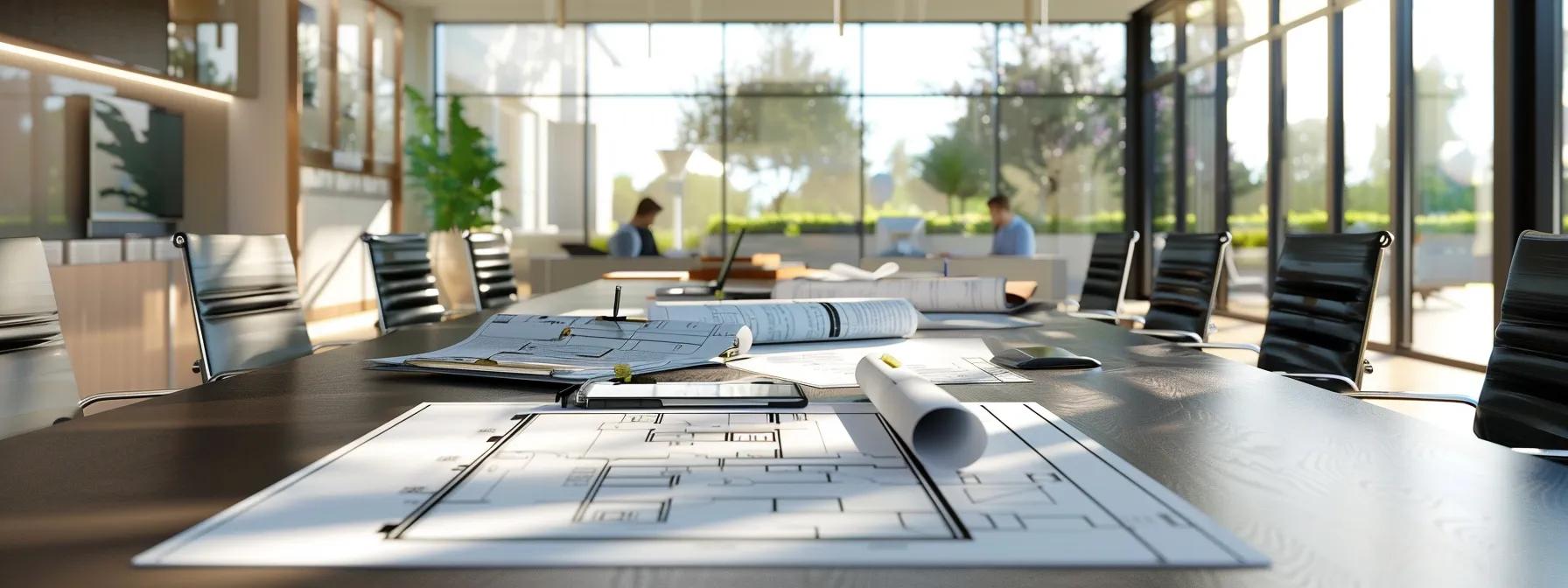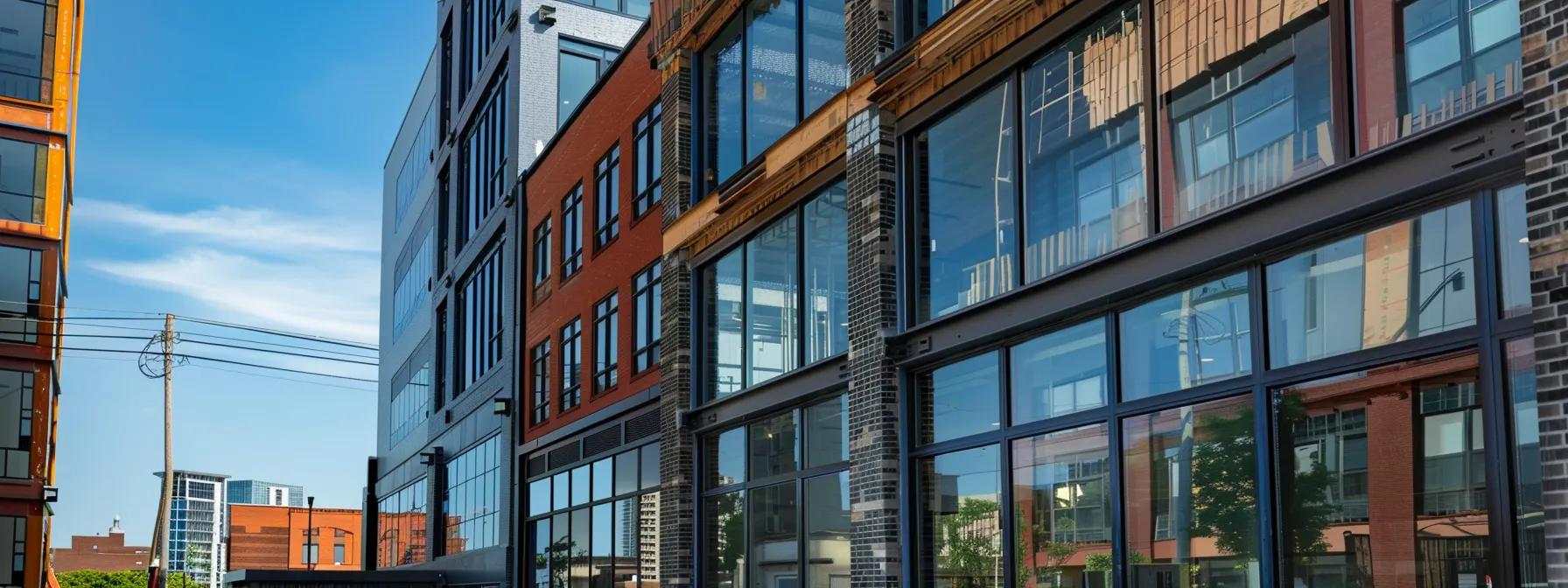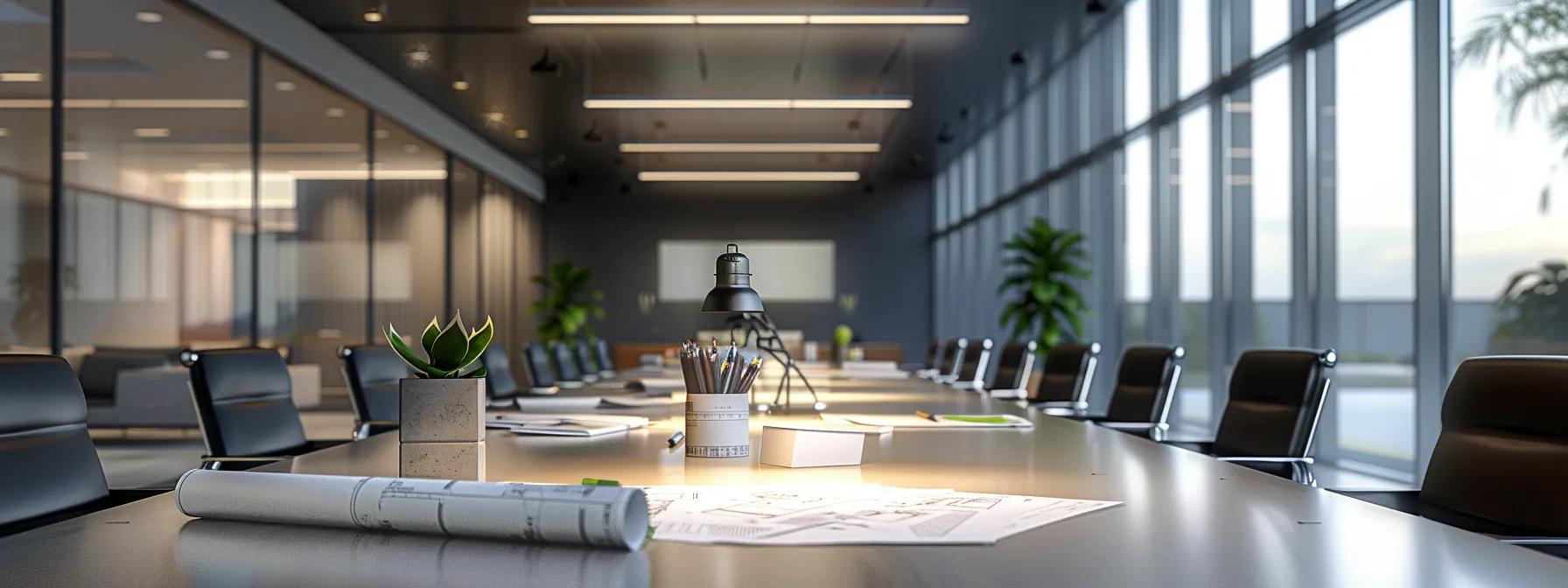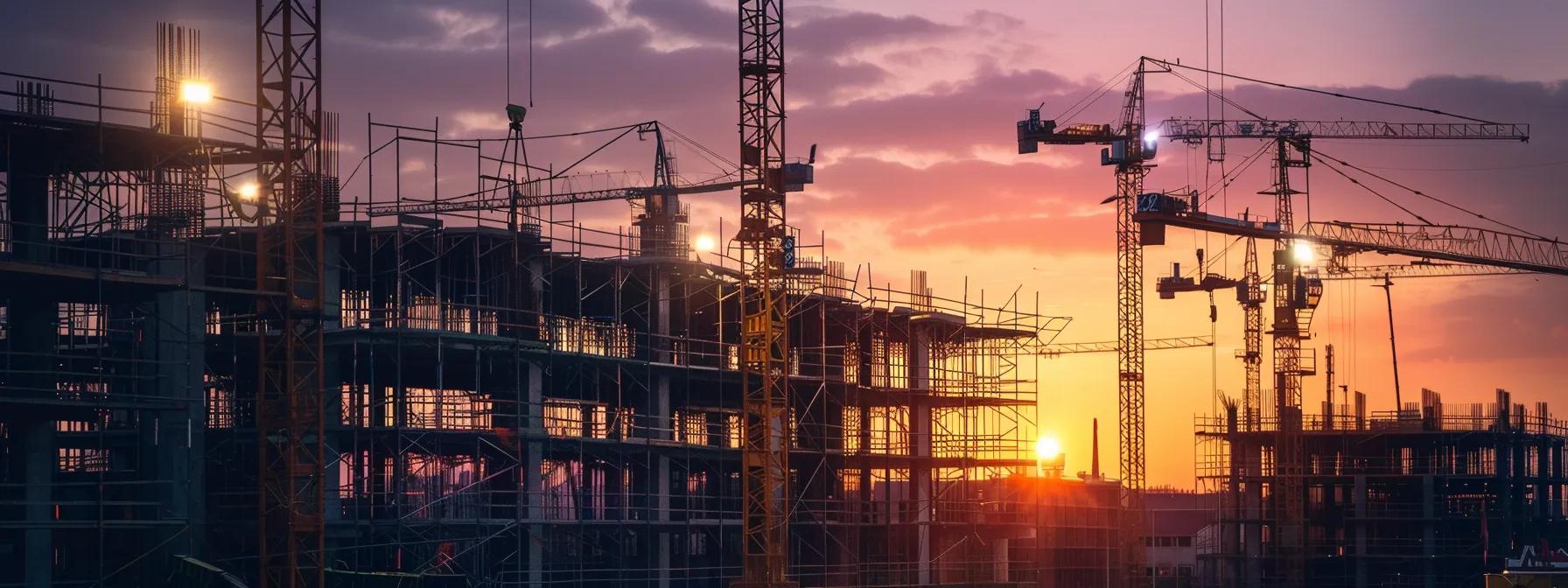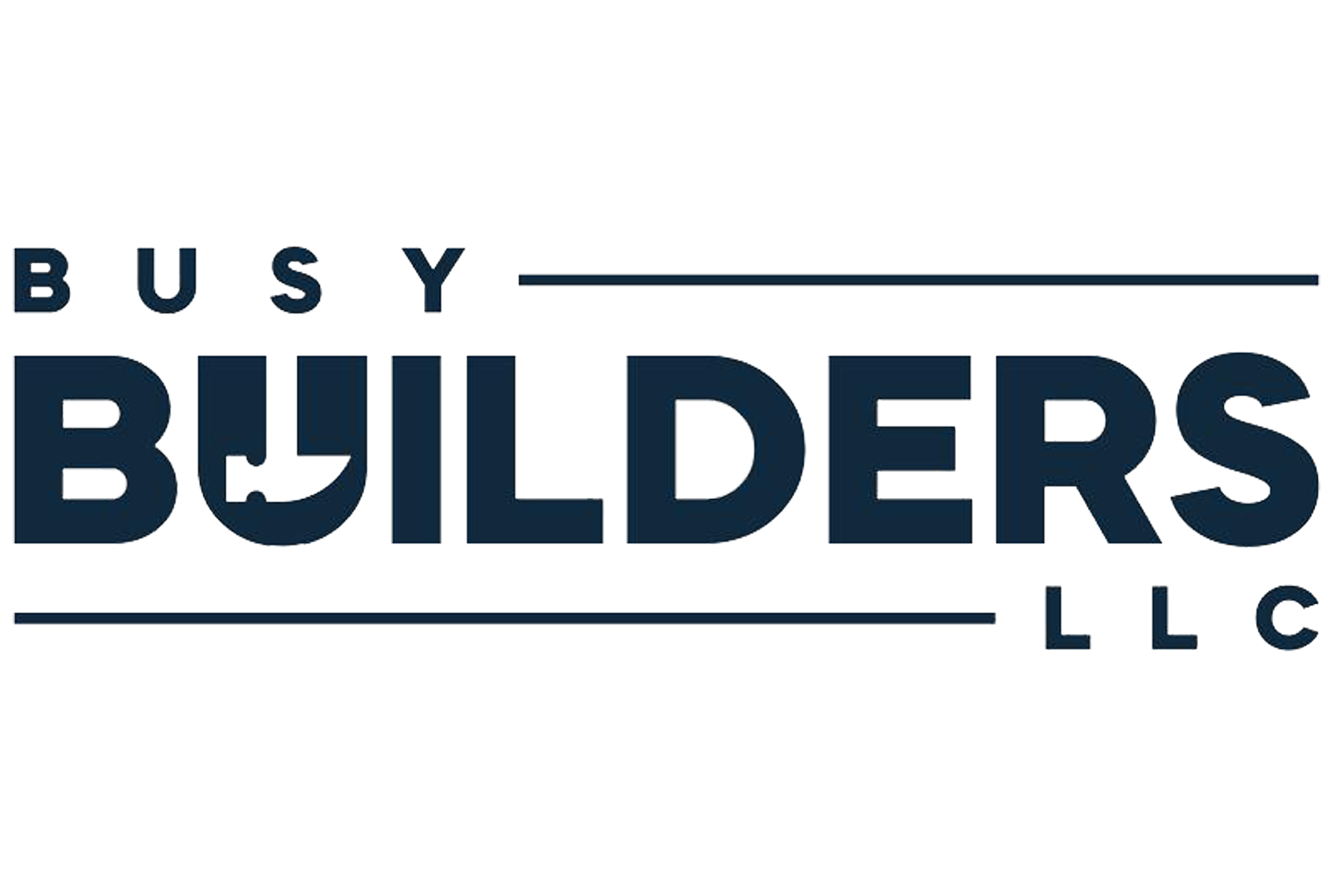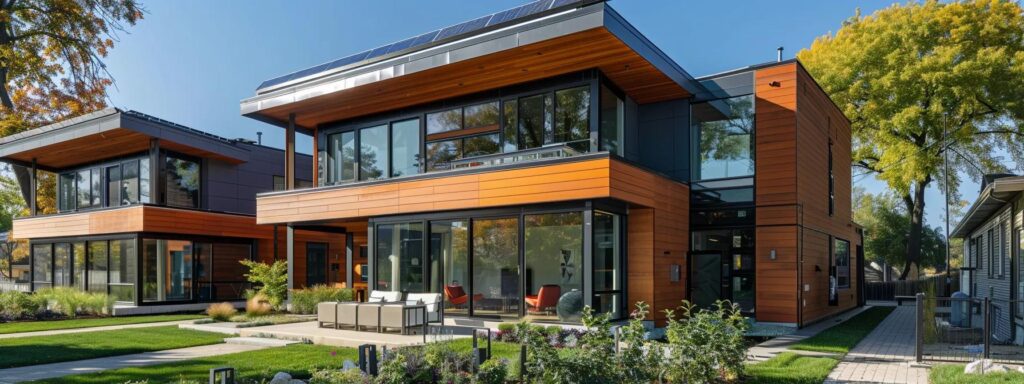
Table Of Contents:
- Sustainable Building Practices Transforming Des Moines Homes
- What Are the Key Sustainable Building Practices Used in Des Moines Homes?
- How Does GreenBuild Des Moines Customize Sustainable Solutions for Homeowners?
- What Are the Environmental and Financial Benefits of Sustainable Homes in Des Moines?
- Which Water Conservation Systems Are Transforming Des Moines Residences?
- How Does Des Moines’ Climate Influence Sustainable Building Choices?
- What Are the Latest Trends in Sustainable Home Technology in Des Moines?
- How Can Homeowners Start Their Sustainable Building Journey in Des Moines?
- Frequently Asked Questions
Sustainable Building Practices Transforming Des Moines Homes
The construction industry is shifting from traditional methods toward greener, smarter home-building solutions that both cut costs and improve the comfort and health of residents. In Des Moines, sustainable home-building practices are on the rise as homeowners and builders embrace strategies that boost energy efficiency, lower maintenance costs, and reduce environmental impact. Integrating smart design, efficient materials, and renewable energy not only helps homes withstand climatic challenges but also contributes to building a greener community. This article reviews key sustainable practices used in Des Moines homes, explains how companies like Busy Builders LLC customize home-building solutions for local needs, and outlines the environmental and financial benefits of these practices. It also covers water conservation methods, the influence of local climate on material choices, and the latest trends in sustainable home technology, ending with actionable steps for homeowners starting their sustainable building journey.
What Are the Key Sustainable Building Practices Used in Des Moines Homes?
Des Moines homes are being redefined by sustainable practices aimed at energy efficiency and eco-friendly construction. Builders incorporate advanced insulation, energy-efficient windows and doors, and environmentally friendly materials such as recycled steel and reclaimed wood to minimize energy loss and create healthier indoor environments with lower levels of volatile organic compounds (VOCs).
LED lighting and smart controls form integral parts of these construction methods. LED lights lower energy use and utility bills, while smart controls adjust lighting and HVAC settings in response to occupancy, further optimizing energy consumption. Water efficiency is addressed through low-flow fixtures, rainwater harvesting, and drought-resistant landscaping, which help manage water resources and reduce stormwater runoff. Overall, these practices not only promote environmental conservation but also deliver economic benefits by lowering utility bills and increasing a home’s return on investment (ROI) and market value in a competitive, eco-conscious real estate market.
How Do Energy-Efficient Renovations Reduce Home Energy Use?
Energy-efficient renovations reduce energy use primarily by minimizing the loss of heated or cooled air through poorly insulated structures. Upgrades such as high-performance insulation (including fiberglass, spray foam, or rigid foam), double- or triple-glazed windows, and smart thermostats help maintain consistent indoor temperatures, reducing the need for extensive HVAC operation.
Automated systems, such as occupancy sensors that adjust lighting and temperature when rooms are empty, further contribute to energy savings. Studies suggest that such renovations can reduce energy consumption by up to 30%, lowering greenhouse gas emissions and providing homeowners with noticeable financial benefits through decreased energy bills.
Which Eco-Friendly Materials Are Popular in New Des Moines Home Construction?
Builders in Des Moines favor eco-friendly materials to lower environmental impacts. Reclaimed wood, with its unique aged appearance and durability, reduces the need for new timber and deforestation. Recycled steel, bamboo, and other sustainable options such as insulated concrete forms (ICFs) and structural insulated panels (SIPs) add strength and energy efficiency to buildings.
Low-emission materials like formaldehyde-free adhesives and VOC-free paints improve indoor air quality, while fiber cement siding offers durability with minimal maintenance. These recycled, renewable, and non-toxic materials are essential for minimizing construction waste and promoting a healthier living environment and community.
What Role Do Solar Panels Play in Sustainable Des Moines Homes?
Solar panels convert sunlight into electricity, reducing reliance on non-renewable energy sources and lowering monthly utility bills. Given Des Moines’ abundant sunshine, solar energy offers an excellent return on investment. Homeowners not only enjoy immediate energy cost reductions but also benefit from grid-tied systems that allow excess energy to earn credits, along with federal tax credits and local incentives that lower installation costs.
Additionally, solar panels provide power resilience during outages, especially when paired with solar batteries, ensuring essential systems remain operational. Studies have shown that solar installations can cut energy bills by as much as 40% over time, making them a cornerstone of sustainable home design in Des Moines.
How Does GreenBuild Des Moines Customize Sustainable Solutions for Homeowners?
Busy Builders LLC and similar local companies customize sustainable solutions by conducting comprehensive energy audits to assess current performance areas like insulation, lighting, and water usage. Based on these assessments, they design customized plans that combine technologies such as solar panels, energy-efficient appliances, and smart thermostats. Additional retrofits may include installing green roofs or advanced water conservation systems tailored to local conditions.
This custom process involves considering energy use intensity (EUI) ratings, carbon footprints, and potential tax credits to balance environmental goals with homeowners’ financial objectives. Detailed consultations ensure that improvements align with priorities such as lowering bills, boosting property value, or enhancing indoor air quality, resulting in scientifically sound and budget-friendly solutions.
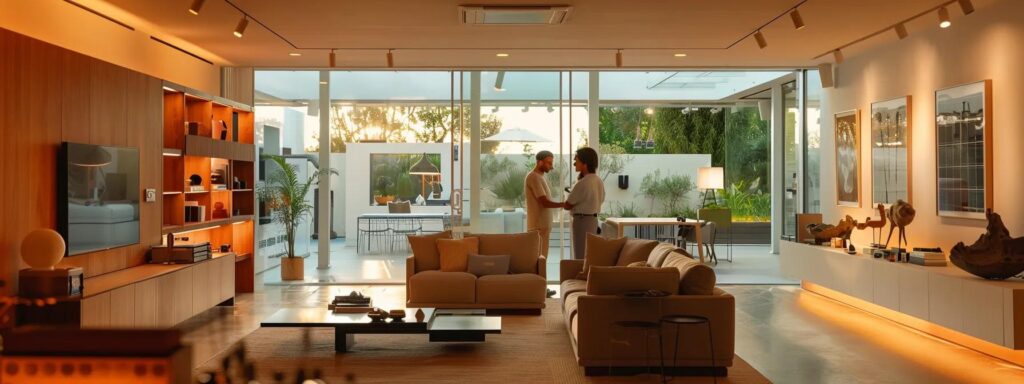
What Factors Influence Tailored Sustainable Building Plans?
Tailored plans account for each home’s unique heating, cooling, and lighting needs based on size, layout, and occupancy patterns, which are determined through an energy audit. Budget constraints and financial goals also influence material selection, as homeowners weigh the upfront costs of improvements against anticipated long-term savings and potential tax incentives.
Local climate further impacts these plans by determining the best materials for withstanding Des Moines’ weather extremes—such as UV-resistant roofing, weatherproof siding, and water-efficient landscaping. Lifestyle factors, including daily occupancy patterns, encourage the use of automated systems to optimize energy efficiency in accordance with actual usage.
How Are Budgets and Environmental Goals Balanced in Custom Projects?
Builders balance budgets with environmental goals by performing detailed cost-benefit analyses. They prioritize upgrades like high-efficiency windows, insulation, and renewable energy systems that, despite higher initial costs, promise lower operational expenses and longer-term savings. Phased project implementations help spread costs over time, allowing homeowners to gradually upgrade improvements while monitoring energy savings.
Clear communication about energy savings and available federal tax credits or rebates reassures homeowners that sustainable projects can improve financial stability while benefiting the environment, ultimately creating a more resilient and economically viable property.
What Are the Environmental and Financial Benefits of Sustainable Homes in Des Moines?
Sustainable homes offer substantial benefits by reducing energy consumption and lowering utility bills, while simultaneously increasing property values. Decreased reliance on fossil fuels leads to fewer greenhouse gas emissions and less environmental degradation, while investments in green features like solar panels enhance a home’s marketability.
Environmentally, sustainable designs reduce waste, lower water consumption, and improve local air quality through features such as green roofs and rainwater harvesting systems. Financially, despite higher upfront costs, these upgrades pay for themselves over time through reduced operating expenses, rebates, and higher resale values—often increasing property worth by 5% to 10%. This synergy of economic and ecological benefits helps foster a more sustainable community in Des Moines.
How Do Sustainable Practices Lower Energy Bills and Increase Home Value?
By incorporating advanced insulation, energy-efficient windows, smart thermostats, and renewable energy systems, sustainable practices significantly cut energy bills and reduce home operating costs. These savings, coupled with the improved indoor environment from low-VOC paints and non-toxic materials, make properties more attractive to buyers. As a result, homes with green upgrades typically enjoy higher selling prices and greater market demand.
In addition, local incentives and tax rebates further enhance the economic attractiveness of sustainable features, ensuring that the long-term savings match the initial investments.
What Environmental Impacts Are Reduced by Sustainable Building?
Sustainable construction techniques reduce overall energy consumption and lessen the emission of carbon dioxide, helping mitigate air pollution and climate change. Water conservation methods such as rainwater harvesting and low-flow fixtures decrease water waste and manage stormwater runoff. The use of recycled, reclaimed, and non-toxic materials minimizes construction waste and lowers the ecological impact associated with raw material extraction. Green roofs and living walls also improve urban air quality and help reduce the urban heat island effect, collectively leading to a cleaner and more resilient ecosystem.
Which Water Conservation Systems Are Transforming Des Moines Residences?
Modern Des Moines homes integrate water conservation systems to reduce water usage, lower utility bills, and ease the strain on local water resources. Rainwater harvesting systems collect and store rainwater from roofs for irrigation, toilet flushing, or even potable uses when properly filtered. Combined with low-flow plumbing fixtures — including faucets, showerheads, and dual-flush toilets — these systems can cut water usage by up to 30%, further reducing the energy needed for water treatment and delivery.
Greywater recycling systems also play an important role by repurposing water from sinks, showers, and washing machines for landscape irrigation, helping manage stormwater runoff in urban settings.
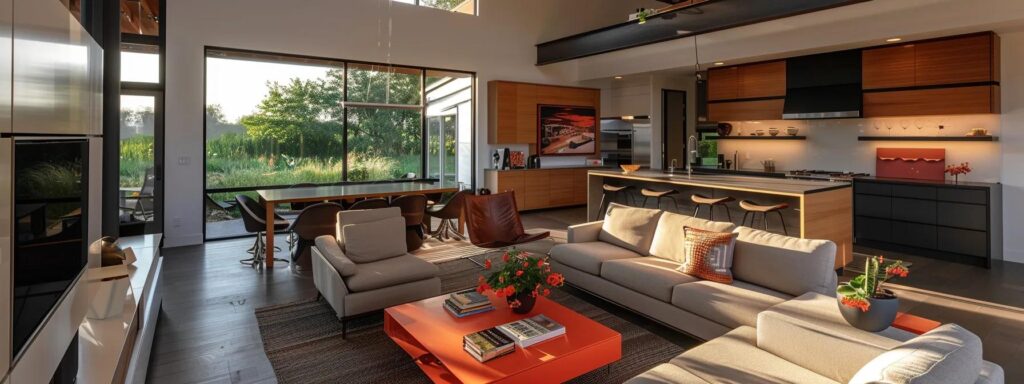
How Does Rainwater Harvesting Work in Residential Settings?
Rainwater harvesting captures rain through gutters and channels it into storage tanks after simple filtration. This stored water is then used for gardening, washing vehicles, or flushing toilets. The efficiency of such systems depends on local rainfall, tank capacity, and installation techniques, with sensors often monitoring water levels to ensure optimal operation. In areas with water scarcity or high municipal costs, this method can reduce reliance on traditional water networks by up to 50%.
What Are the Advantages of Low-Flow Plumbing Fixtures?
Low-flow fixtures are designed to maintain performance while using significantly less water, thereby reducing both water bills and the energy required for water heating and treatment. Features such as aerators mix air with water to preserve water pressure despite restricting flow. These fixtures provide nearly the same level of usage as traditional models but contribute to substantial energy savings and help protect local water resources with minimal maintenance over their lifespan.
How Does Des Moines’ Climate Influence Sustainable Building Choices?
Des Moines experiences hot summers and cold winters, influencing builders to prioritize materials and designs that ensure energy efficiency year-round. High-performance insulation, energy-efficient windows, and durable roofing materials help maintain indoor comfort despite external climate extremes. Reflective or green roofs reduce heat absorption during summers, while moisture management systems prevent damage in winter weather.
Ventilation systems with smart thermostats and insulated ductwork ensure consistent indoor air quality, and landscaping choices featuring drought-resistant plants and efficient irrigation systems further conserve water, making these measures vital for sustainable construction in Des Moines.
What Climate-Specific Materials and Technologies Are Recommended?
For Des Moines’ variable climate, high-performance insulation materials (like spray foam and rigid foam), triple-glazed windows with low-emissivity coatings, and energy-efficient HVAC systems with smart controls are essential. Roofing solutions such as cool roofs and green roofs help manage heat during summer and retain warmth in winter, while durable exterior materials like fiber cement siding withstand local weather pressures. Advanced waterproofing and moisture barriers also play a crucial role during heavy rain or snowmelt.
How Do Local Building Codes Support Sustainable Construction?
Local building codes in Des Moines have evolved to include standards for energy efficiency, water conservation, and overall environmental design. These codes mandate higher insulation levels, energy-efficient windows, and sustainable materials while promoting renewable energy systems like solar panels and geothermal heat pumps. Requirements for proper stormwater management further support these practices. Overall, these codes ensure that new constructions are not only durable and safe but also aligned with sustainable principles, helping reduce the environmental footprint of development in the region.
What Are the Latest Trends in Sustainable Home Technology in Des Moines?
Recent trends in sustainable home technology are transforming Des Moines residences through advances in smart home systems, renewable energy integration, and building automation. Homeowners now enjoy the ability to monitor and control lighting, temperature, and water usage via mobile apps and interconnected sensors. These technologies facilitate real-time energy management and adaptive controls that respond to occupancy and weather conditions.
In addition, innovations such as home energy storage systems and small-scale wind turbines complement traditional solar panels, while emerging building materials like self-healing concrete and phase-change insulation further enhance energy performance and reduce maintenance needs. Together, these trends are reshaping sustainable living and reducing the overall energy footprint of homes.
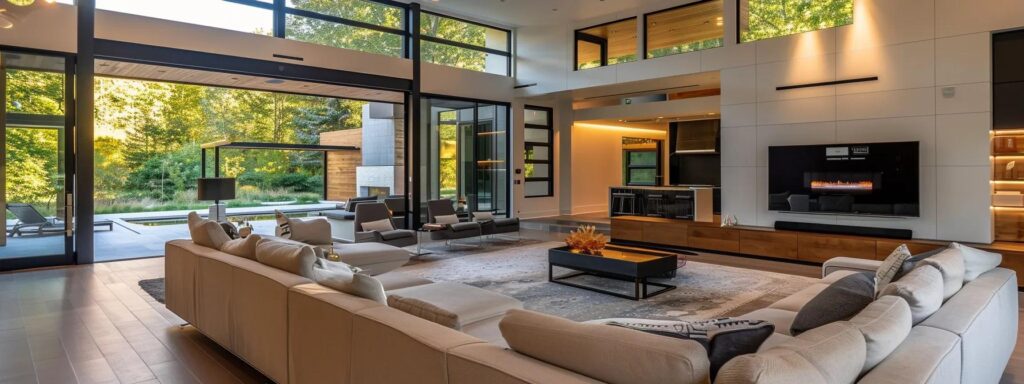
How Are Smart Home Systems Integrated With Energy Efficiency?
Smart home systems combine sensors, thermostats, and communication networks to provide real-time control over lighting, heating, and cooling. By adjusting settings based on occupancy and weather data, these systems reduce waste and promote efficient energy use. Such integration not only offers convenience but also contributes to measurable energy savings and a reduced carbon footprint, aligning with Des Moines’ eco-friendly building initiatives.
What Innovations Are Driving Sustainable Home Improvements?
Key innovations include integrated renewable energy management systems that combine solar power, battery storage, and smart grid connectivity. The use of IoT devices in home automation allows for coordinated control of multiple systems, enhancing energy-saving measures. Additionally, advancements in building materials—such as energy-efficient windows and phase-change insulation—reduce maintenance needs and improve overall efficiency. These innovations offer homeowners improved performance, reduced costs, and a more sustainable living environment.
How Can Homeowners Start Their Sustainable Building Journey in Des Moines?
Beginning a sustainable building journey may seem daunting, but a few practical steps can streamline the process. Start with a comprehensive assessment of your home’s energy use, water consumption, and indoor air quality. An energy audit provides a baseline for identifying key areas of improvement.
Next, consult with trusted professionals like Busy Builders LLC to discuss potential upgrades such as energy-saving lighting, improved insulation, and renewable energy installations. Educational resources, workshops, and local government programs can also offer valuable insights and reveal available incentives like rebates and tax credits that help offset costs.
Finally, develop a phased plan with clear objectives to gradually implement sustainable upgrades over time. This approach allows you to spread costs, monitor improvements, and adjust technologies as needed—all while enjoying long-term financial savings and contributing to a healthier environment.
What Are the First Steps to Assessing a Home’s Sustainability Needs?
Begin by conducting an energy audit to evaluate insulation, windows, HVAC systems, and water usage. This process yields a detailed report that highlights inefficiencies and suggests prioritized upgrades. Additionally, review building materials and water fixtures to determine if modern, energy-efficient alternatives could improve performance. Combining these technical assessments with an evaluation of daily usage patterns creates a holistic understanding of your home’s sustainability and guides targeted improvements.
Where Can Des Moines Residents Find Trusted Sustainable Building Experts?
Des Moines residents can turn to local professionals such as Busy Builders LLC for sustainable construction and remodeling projects. Local trade associations, green building councils, and municipal sustainability programs also provide directories of certified experts. Additionally, free consultations and referrals from community groups, online reviews, or green building seminars can help you identify trusted experts who are experienced in delivering eco-friendly, cost-effective home improvements.
What Incentives and Rebates Are Available for Sustainable Home Projects?
A range of incentives and rebates are available for homeowners pursuing sustainable projects. Federal tax credits, state rebates for solar panels and energy-efficient systems, and local utility incentives can significantly reduce upfront costs. Many local government programs offer free energy audits, low-interest financing, or additional support for projects that enhance energy efficiency and sustainability. These financial incentives help make green upgrades more affordable and improve a home’s long-term return on investment.
Frequently Asked Questions
Q: What is the primary benefit of sustainable building practices in Des Moines homes? A: They primarily reduce energy and water usage, lower utility bills, and increase home value while minimizing carbon emissions and waste.
Q: How do energy-efficient renovations improve a home’s performance? A: By upgrading insulation, windows, and HVAC systems, these renovations reduce energy loss, lower consumption, and maintain consistent indoor temperatures, leading to cost savings and enhanced comfort.
Q: Which eco-friendly materials are most commonly used in Des Moines construction? A: Materials such as reclaimed wood, recycled steel, bamboo, low-emission paints, and insulated concrete forms are popular for their durability and reduced environmental impact. For more information about services, visit our services.
Q: What role do smart home systems play in achieving energy efficiency? A: They integrate sensors, thermostats, and automated lighting to dynamically control energy use, enabling real-time adjustments that reduce waste and lower bills.
Q: Can I start by assessing my current home’s sustainability needs? A: Yes, an energy audit is essential for identifying inefficiencies and guiding sustainable improvements.
Q: What incentives are available for sustainable home projects in Des Moines? A: Federal tax credits, state rebates, and local utility incentives help offset the costs of green upgrades, making sustainable retrofits more affordable.
Q: How does Des Moines’ local climate influence sustainable construction? A: The region’s hot summers and cold winters necessitate high-performance insulation, energy-efficient windows, and durable roofing designed to withstand extreme weather while maximizing efficiency.

